Professor Monica Lakhanpaul’s pioneering NEON (Nurture Early for Optimal Nutrition) project addresses the critical first 1,000 days of a child’s life, focusing on optimising nutrition, dental health and overall development among South Asian communities in East London.
By engaging mothers, carers and community members as co-researchers, Monica’s initiative has empowered these communities to directly impact and improve early childhood health. Following its success in East London, NEON is now expanding to broader UK regions and globally, bringing crucial health support to underserved populations.
The B.A.M.E HCA caught up with Monica earlier in the year. This is what she had to say.
Monica, can you share what initially inspired you to develop the NEON initiative and why you chose to focus specifically on South Asian communities in East London?
The NEON initiative was inspired by the need to address the nutritional inequalities and health disparities faced by South Asian communities, particularly in East London, where this group has high levels of chronic diseases like type 2 diabetes, cardiovascular conditions and other diet-related health issues.
Our focus on South Asian communities stemmed from concerning previous research indicating that these populations often experience unique challenges in relation to nutrition, such as limited access to culturally relevant health information, traditional dietary habits and higher levels of food insecurity.
East London, being home to a large South Asian demographic, presented an opportunity to implement a community-centred research methodology in nutrition and health, focusing on the early life stages of children to promote lifelong health. Our approach was rooted in the understanding that early nutrition in the first few years of a child’s life has long-lasting effects on an individual’s health trajectory, making it a crucial area to target for preventative health interventions.
Your use of the Participatory Learning and Action method has truly made NEON a community-driven project. How has involving community members as co-researchers impacted the success and sustainability of the program?
Involving community members as co-researchers has been a cornerstone of our NEON program, which is based on the principles of Participatory Learning and Action (PLA). By allowing affected community members to act as active collaborators in the research process, we ensured that the solutions and interventions were not only culturally relevant but also informed by the lived experiences of the people we aimed to serve with our findings and hoped-for research results. This approach aimed to foster trust and engagement within this often-underserved community in terms of health support provision in East London and across the UK more generally.
As co-researchers, community members shared valuable insights into their health needs and preferences with us, which will hopefully lead to more effective and sustainable long-term positive outcomes from our work. We believe that his participatory approach has not only made the program more responsive to community needs but also empowered individuals from this group to contribute directly to improvements in the health of their community, family, and current and future children, which we consider crucial for the long-term success of the program.
What motivated you to create resources like the Cultural Recipe Book and Community Asset Maps, and how have these tools been received by the community?
The motivation behind creating resources like the Cultural Recipe Book and Community Asset Maps was to integrate the community’s cultural practices and local knowledge directly into healthy nutrition practice-promoting activities for the families we were looking to support and help the most.
The Cultural Recipe Book aimed to merge traditional South Asian recipes with science-backed nutritional advice, helping families adopt healthier dietary practices while honouring their cultural heritage and traditional feeding practices. This resource was developed in direct response to community feedback, acknowledging the importance of familiar foods in improving nutrition without sacrificing cultural identity in minority communities in the UK.
The Community Asset Maps were created to help affected residents identify and leverage community resources like healthcare services, food banks and community centres that support their family’s health and wellbeing in terms of feeding and beyond. We are pleased that these resources have been positively received overall, with common feedback indicating that they offer immediate, practical, and culturally sensitive ways for families in the community to improve their children’s health in the long term and make full use of existing local public support networks and facilities.
Now that NEON is scaling up across the UK and beyond, what are the primary goals or changes you hope to see as the programme expands?
As NEON scales up across the UK and beyond, our primary goal is to extend the benefits of early nutrition interventions to more diverse communities, with a particular focus on those minority children and families at high risk for diet-related diseases. We aim to develop a sustainable, co-produced nutrition model that can be adapted for use in other regions and populations, with a community-driven, culturally sensitive approach remaining a core principle of our ongoing research and impact.
With the expansion, we hope to see increased integration of early-life nutrition interventions in public health and wellbeing policies in London, major UK cities and beyond, particularly focusing on the first 1000 days of life for babies and children, which are crucial for setting the foundation for lifelong health.
We also aim to enhance collaboration between health services, community groups and local authorities to ensure a more holistic and inclusive approach to health and social care support for these underserved communities.
Ultimately, our goal is to demonstrate that culturally tailored, community-led health support programs and resources can play a central role in reducing health inequalities and improving the health outcomes of B.A.M.E. communities, both in the short and long term.
How has your work with NEON influenced your perspective on integrating cultural sensitivity in healthcare, and what would you like to see change in terms of supporting B.A.M.E. communities within the healthcare system?
Our work with NEON has reinforced the understanding that cultural sensitivity is essential for effective healthcare provision, particularly when addressing the needs of the most vulnerable B.A.M.E. communities.
Our team’s approach—focusing on early nutrition and community engagement for healthcare solution-finding—has demonstrated that culturally tailored research and resultant health interventions are more likely to be accepted by the communities in question, leading to positive outcomes. This experience has deepened my appreciation of the critical and life-changing importance of incorporating cultural factors into health and social care delivery.
I would like to see healthcare systems place a stronger emphasis on cultural competence, ensuring that healthcare providers and policymakers understand and respect the dietary practices and health beliefs of minority populations like the South Asian community. Additionally, there should be more support for community-based interventions that involve people from these communities in the design and delivery of research programs and healthcare.
This would not only improve engagement but also help eliminate barriers to access, ensuring that B.A.M.E. communities receive care that is both relevant and respectful of their cultural beliefs and practices for the benefit of all.
Looking forward, what are your aspirations for NEON and similar community health initiatives, and how do you hope to continue advocating for B.A.M.E. communities in healthcare research and policy?
Looking forward, I hope to see our NEON program and Cultural Recipe Book and Community Asset Maps support tools expand into a model that other community health initiatives can adopt across London, the UK and even beyond. The goal was to create a scalable and adaptable framework for health and social care provision programs that combine early nutrition interventions with participatory methods, particularly for UK minority-ethnic marginalised and underserved communities. In the long term, I aspire to see healthcare systems across the UK and globally adopt more community-driven, culturally sensitive models of care and support for children and their families.
I also aim to continue advocating for greater representation of B.A.M.E. communities in healthcare research and policy, ensuring that their voices and experiences are not only heard but are central to the development of new health policies and practices not just for nutritional benefits but for general health and wellbeing support for the youngest members of our communities.
I hope that my work will continue to focus on promoting the inclusion of culturally tailored interventions in local, national, and international child health provision and policy, as I believe that the future of healthcare should be rooted in inclusivity and respect for diverse cultural beliefs and practices to ensure maximum health benefits.

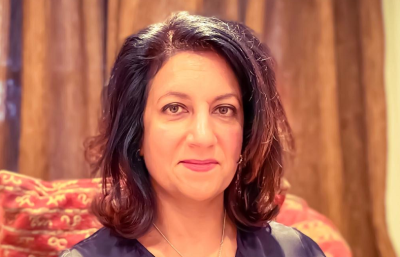





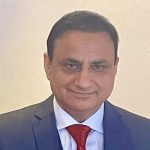
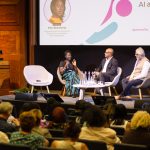


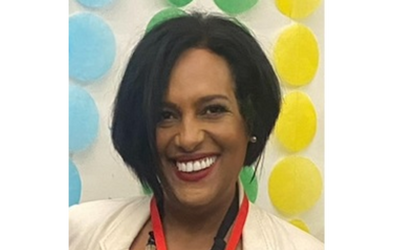



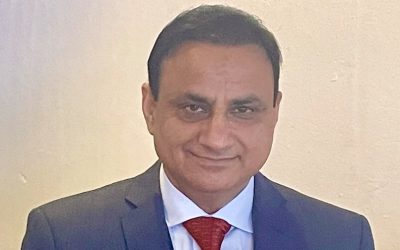
0 Comments